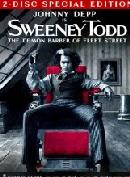HOME PAGE
SITE GUIDE
SEARCH
ADVERTISING AT CURTAINUP
REVIEWS
FEATURES
NEWS
Etcetera and
Short Term Listings
LISTINGS
Broadway
Off-Broadway
NYC Restaurants
BOOKS and CDs
OTHER PLACES
Berkshires
London
California
New Jersey
Philadelphia
Elsewhere
QUOTES
TKTS
PLAYWRIGHTS' ALBUMS
LETTERS TO EDITOR
FILM
LINKS
MISCELLANEOUS
Free Updates
Masthead
Writing for Us
A CurtainUp Los Angeles Review
Looped
|
When I was a little girl, I had an imaginary friend. She didn't like me all that much.— & Tallulah Bankhead.
|
Looped debuts at The Pasadena Playhouse where Lombardo also presented his one-woman play Tea at Five starring Kate Mulgrew as Katharine Hepburn. As the Playhouse's Artistic Director Sheldon Epps pointed out, Tea at Five, though it's had a successful career, is a monologue while Looped is definitely and gloriously a play, starring the superb Valerie Harper. Believe me, you will never think of her as just Rhoda again.
Based on a real tape in which Bankhead takes eight hours to loop one line from Die, Die, My Darling, Lombardo sets the play in a recording studio and creates a conflict between Bankhead and assistant director Danny Miller (Chad Allen) to paint a character portrait. Although he gives us enough references to her past, it's not a chronological bioplay. We learn that Tallulah was the daughter of an Alabama congressman and Speaker of the House, granddaughter of a senator, working actress at 15, West End London star in her 20s, and Broadway star soon after. Her triumphs included The Little Foxes, Skin of Our Teeth, Private Lives and Alfred Hitchcock's movie Lifeboat. Her tragedies included the venereal disease and hysterectomy that ended any hope of having children. She used her lifelong addiction to alcohol and drugs to become a camp parody of herself and her brilliant wicked tongue to ward off love, though her bisexual love affairs were legion. One of the play's funniest lines is, "You buy and I'll be sexual."
Lombardo finds ways to emphasize Bankhead's mind by having her object to the ungrammatical line she's given and showcases her talent by letting her recite a speech from Tennessee Williams' A Streetcar Named Desire which both Harper and Bankhead deliver hauntingly. In Danny, he's constructed a character with a crippling problem which Tallulah eases by forcing him to be as blunt and open about his feelings as she is. It's a formula but Lombardo uses it to catch Bankhead's voice and Harper uses it to mine warmth, sadness and understanding beneath what could be just a campy construction of quotes. Rob Ruggiero, whose direction is clipped but never rushed, deserves some credit for this. Allen is strong in the more limited character of Danny and Michael Karl Orenstein makes Steve, the sound engineer's, monosyllabic comments a treat.
The play makes Tallulah a character, not a caricature, while giving full entertainment value. Miller, though often devastatingly cruel, never lets Bankhead walk all over him and their conflict. It is also hilariously funny, one of the best plays in years. It should go far but Valerie Harper should always go with it.
|
LOOPED Playwright: Matthew Lombardo Director: Rob Ruggiero Cast: Valerie Harper (Tallulah Bankhead), Chad Allen (Danny Miller), Michael Karl Orenstein (Steve) Scenic Design: Adrian W. Jones Lighting Design: Michael Gilliam Costume Design: Alex Jaeger Sound Design: Michael Hooker Running Time: Two hours with one intermission Running Dates: June 27-August 3, 2008 Where: The Pasadena Playhouse, 39 S. El Molino Avenue, Pasadena. Reservations: (626) 356-PLAY Reviewed by Laura Hitchcock on July 8. |
|







